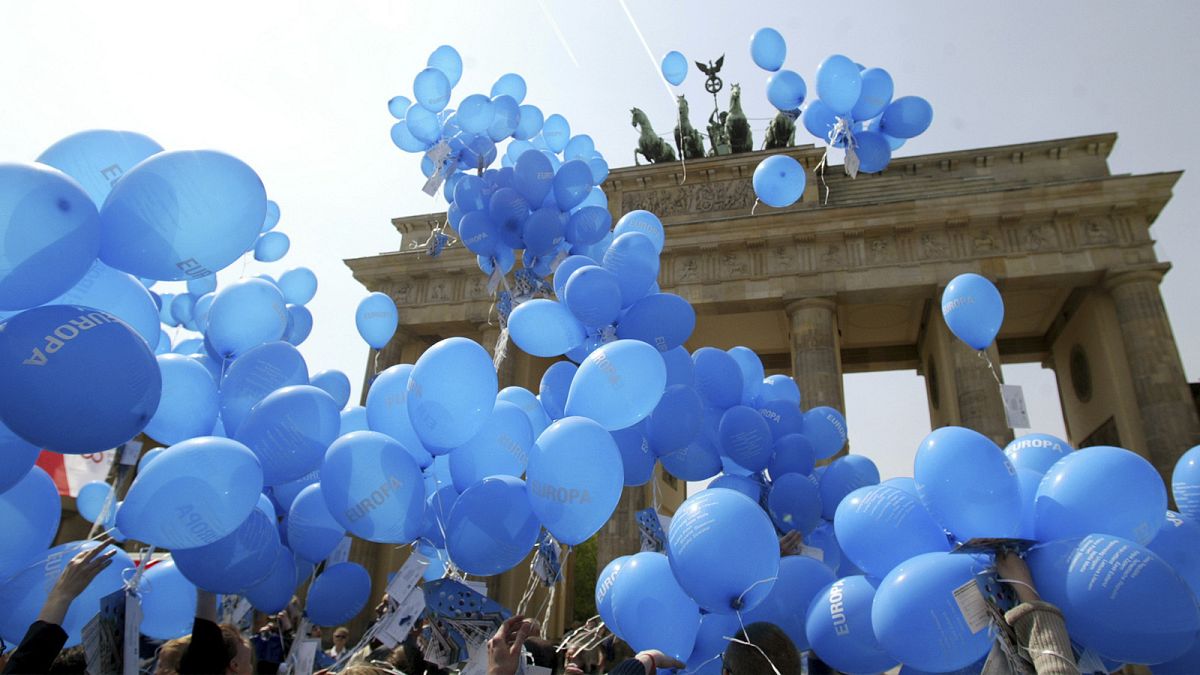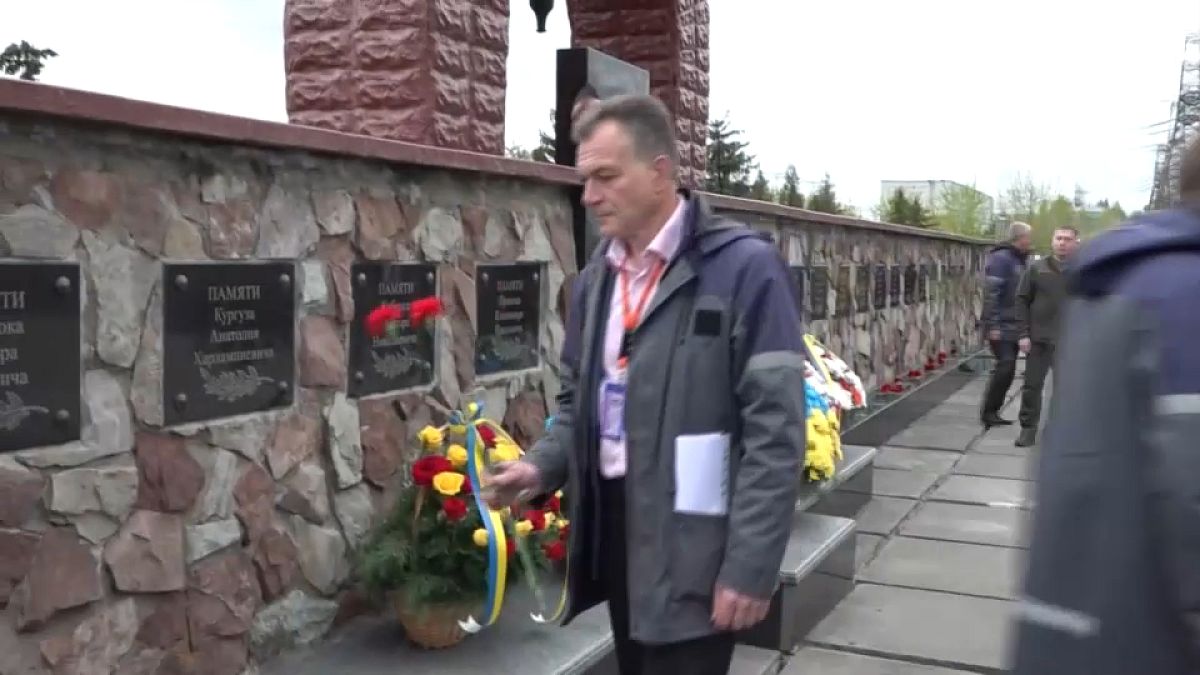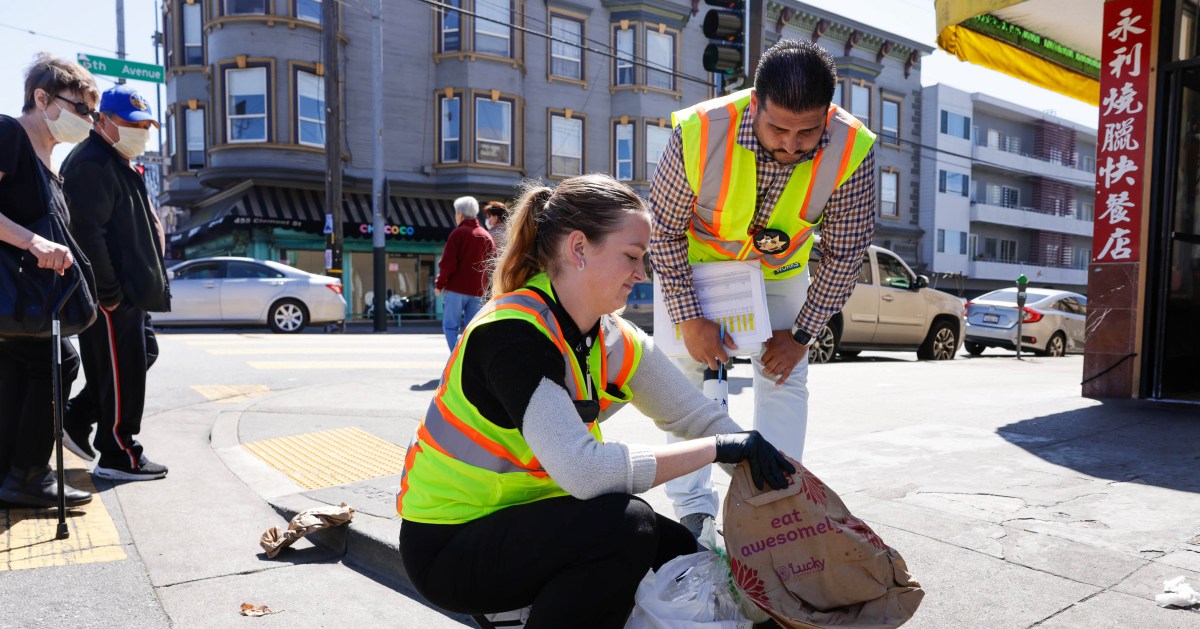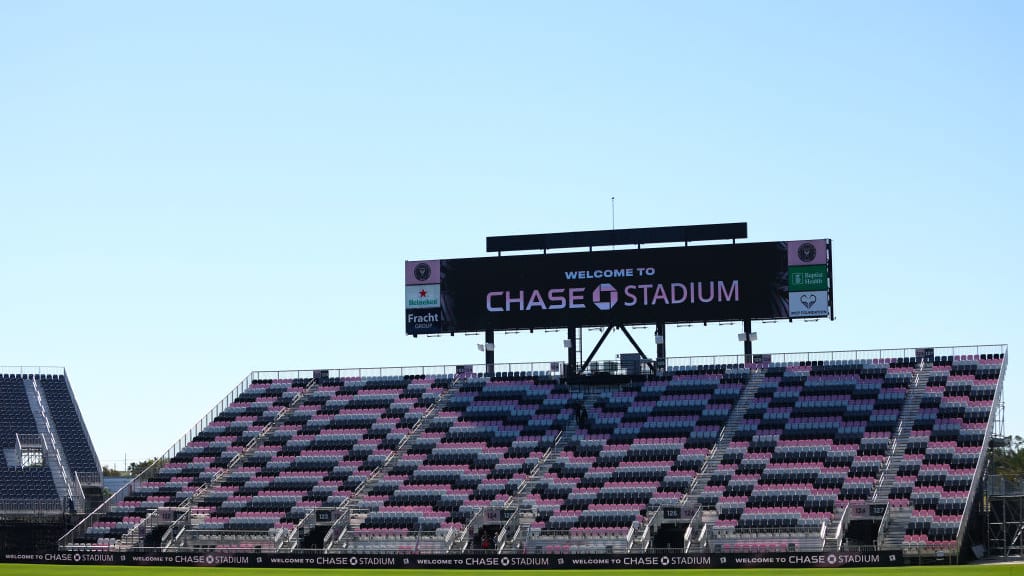World
Orbán threatens to blow up Ukraine policy as EU leaders meet
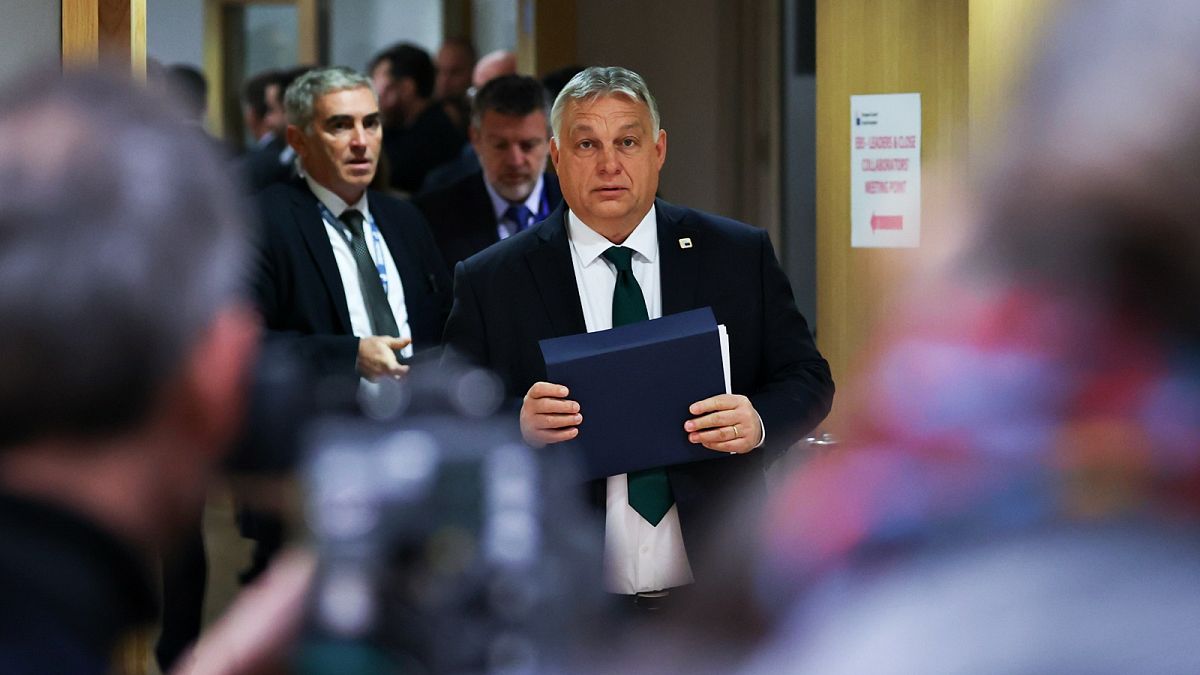
Leaders of the European Union are gathering today in Brussels for a two-day summit where the future of the bloc’s Ukraine policy will be defined.
Momentous decisions on whether to formally open membership negotiations with the war-torn nation and approve a €50-billion special fund in long-term support, which is pegged to a broader review of the common EU budget, are expected to be taken.
Relations with other candidate countries, such as Moldova, Georgia and Bosnia and Herzegovina, the war between Israel and Hamas, the situation at the Finland-Russia border, migration, security and defence will also be on the packed agenda.
Hungarian Prime Minister Viktor Orbán has cast himself as the summit’s main protagonist by mounting a fierce opposition campaign to prevent accession talks with Ukraine and halt any further provisions of financial and military assistance. Both consequential decisions require the unanimity of the 27 member states and are therefore vulnerable to national vetoes.
Orbán’s combative push has played out across public speeches, billboard campaigns, social media posts, newspaper interviews and not one but two letters personally addressed to European Council President Charles Michel.
“Even when there are some differences or divergences, it’s important to respect everyone and to see how we can build a united position because we are strong when we are united,” Michel said on Wednesday.
“It’s not a secret that this European Council is a difficult one, but I do not give up and we will work a lot in the hours to come. And I count on the sense of collective responsibility on all sides to make us stronger,” he added.
Among his numerous grievances, the Hungarian premier has sharply criticised the European Commission’s assessment of Ukraine’s readiness to join the bloc. According to the executive, Kyiv has “fully” met four of the seven reforms necessary to kick-start negotiations, with work underway in the fields of anti-corruption, de-oligarchisation and the rights of minorities.
Orbán has called the assessment “unfounded and poorly prepared” and said the eventual accession of Ukraine would deprive Hungary of billions in agricultural and cohesion funds. The premier has pitched a “strategic partnership” with Ukraine as an alternative to EU membership, even if full-time membership would take years to materialise.
“The European Union is about to make a terrible mistake, which must be prevented,” he said in an interview published ahead of the summit.
“In fact, Ukraine is not in a position to start accession negotiations but because of the war, for geostrategic, let’s say, political reasons, negotiations with (Ukraine) have to start. I think that’s a mistake.”
The debate on enlargement could be further hindered by a demand from the “Friends of the Western Balkans,” who are calling for Bosnia and Herzegovina to be treated on the same terms as Ukraine and be given the chance to open accession talks.
But the appeal from the coalition, which features Hungary, Austria and Czech Republic, among others, has been met with scepticism from Northern and Western countries, who believe Bosnia is nowhere close to fulfilling the reforms imposed by the Commission.
‘This is not a Hungarian bazaar’
Orbán has also taken exception to the proposed Ukraine Facility, a support programme made up of €33 billion in low-interest loans and €17 billion in non-repayable grants, claiming the money would fall prey to corruption and be impossible to track down.
The litany of complaints has left diplomats in Brussels wondering how to square the circle and prevent the Hungarian veto from blowing up the two-day summit.
“Hungary is worried about the levels of corruption in Ukraine, which is interesting. I’ve heard them say they’re worried about the rule of law, which is also interesting. I haven’t heard them yet say they’re worried about LGBTQ rights,” quipped a senior diplomat.
Speaking on condition of anonymity, diplomats and officials acknowledge that a sort of deal has to be achieved at the end of the meeting, even if talks need to be extended into the weekend. The need to buttress the bloc’s financial support for Ukraine has become a political imperative as American aid is currently stuck in the US Congress.
“If we fail, it will be a serious blow,” said a diplomat from another country. “Negotiations are still ongoing. It’s very difficult. The support for Ukraine is of paramount importance.”
Orbán’s veto threat, however, is not the only stumbling block in the way of the Ukraine Facility: the €50-billion plan is part of a €100-billion review of the bloc’s multi-annual budget that the Commission has proposed to cope with challenges such as irregular migration, cutting-edge technology and rising interest rates.
Brussels wants member states to put €66 billion of fresh cash on the table, a bill that a vast majority of capitals has categorically rejected. The talks between heads of state and government will decide how much money will be paid out and how much will be redeployed from other programmes in the current EU budget.
The bargaining is poised to be intense and fractious: Southern countries like Italy and Greece want to preserve funds for migration, while frugal-minded states like Germany, the Netherlands and Sweden demand a Ukraine-only budget.
The latest compromise speaks of fresh money to the tune of €22 to €25 billion, backed by redeployments and savings in other areas. STEP, a proposed €10-billion platform to finance tech projects, is widely expected to be cut down to the bare minimum.
Making matters more awkward for leaders, the budget talks come amid fears that Orbán will attempt a quid-pro-quo to secure full access to Hungary’s cohesion and recovery funds, frozen last year over persistent rule-of-law concerns. The Commission approved on Wednesday the release of up to €10.2 billion in cohesion funds, leaving more than €20 billion firmly blocked. Budapest has asked for the entire pot of cash to be unfrozen.
“We should be clear: this is not a Hungarian bazaar where anything can be traded for something else,” said Belgian Prime Minister Alexander De Croo.
Should Orbán insist on that trade-off path, diplomats are already preparing alternatives to build a parallel scheme, backed by 26 member states, to provide financial support for Ukraine without interruptions. Kyiv faces a budget deficit of about €40 billion in 2024 and Brussels, as of now, only has one payment left to make.
“It is important to listen to everybody’s concerns regarding these points that we have to decide and I hope that in the end, we will reach an agreement,” said Estonian Prime Minister Kaja Kallas, one of the leaders who has in recent days reached out to Orbán in a bid to avoid a catastrophic summit.
“But right now, I am not that optimistic in this regard.”

World
'Show solidarity': Pro-Palestinian protesters camp across Australian universities

World
China increases aggressive moves against Taiwan as island prepares to inaugurate new president
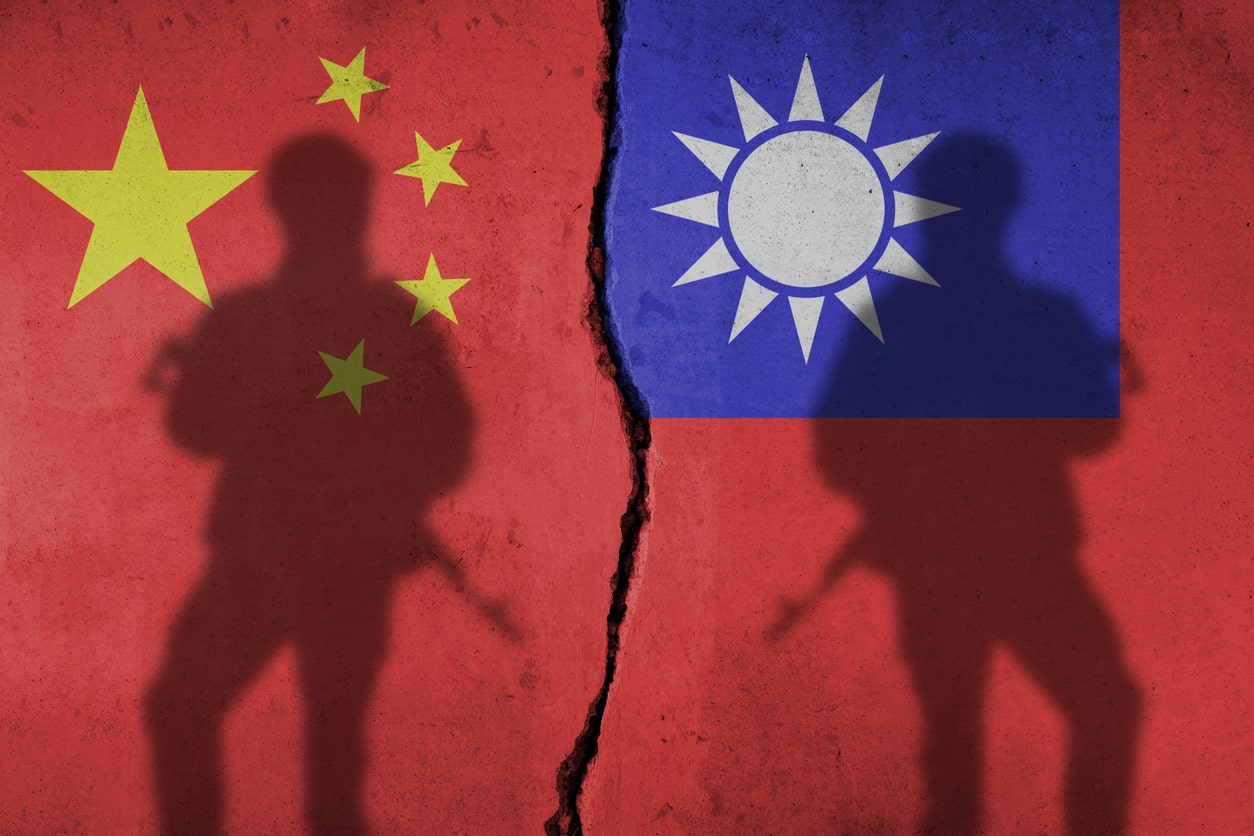
KAOHSIUNG — Virtually every day, the People’s Republic of China does something unprecedented — its coast guard briefly boarding a Taiwanese tourist boat, flying military aircraft ever closer to Taiwan or increasing harassment of Taiwanese fishing boats in the South China Sea.
“This is a problem,” says Dean Karalekas, author of “Civil-Military Relations in Taiwan: Identity and Transformation.” “Because these unprecedented actions are creating a new normal. Beijing hopes that we (the West) will sit by and watch as they take over Taiwan, just as we did when they used these same salami-slicing tactics to take over the South China Sea.”
The world began noticing more of China’s hostile actions following the visit to Taiwan by former U.S. House Speaker Nancy Pelosi in 2023, but the strategy has been in place for some time.
“China’s plan to ‘normalize’ military encroachments was planned long before Pelosi’s visit,” Taipei Times columnist and political commentator C. Donovan Smith told Fox News Digital. “The military exercises were far too complex and logistically complicated to have been planned in the short span of time between the announcement of her trip and her arrival in Taiwan.”
TAIWAN ELECTION: RULING PARTY CANDIDATE WINS TIGHTLY CONTESTED PRESIDENTIAL RACE, UPSETTING CHINA’S AMBITIONS
President-elect William Lai votes in southern Taiwan’s Tainan city Jan. 13, 2024. (AP Photo/Ng Han Guan)
Surrounding Taiwan in a mock “quarantine” and performing missile “tests” in 2023 was also intended to push Taiwanese voters toward politicians and parties more friendly to China. But, as has been the case in the last three elections here, Beijing’s ploys were ineffectual. Taiwan in January elected the incumbent vice president, William Lai, to take over from two-term President Tsai Ing-wen. Both Tsai and Lai are members of the Democratic Progressive Party (DPP).
The incoming Taiwan president has repeatedly pledged to make no changes to policies in place over the last eight years. Beijing, however, sees William Lai (Lai Ching-te) as a “splittist” and a supporter of Taiwan independence. Lai previously did voice support for independence but has tried to walk that back. China, however, does not forgive nor forget. Many political experts believe Beijing will ratchet up pressure as Lai enters office later this month.
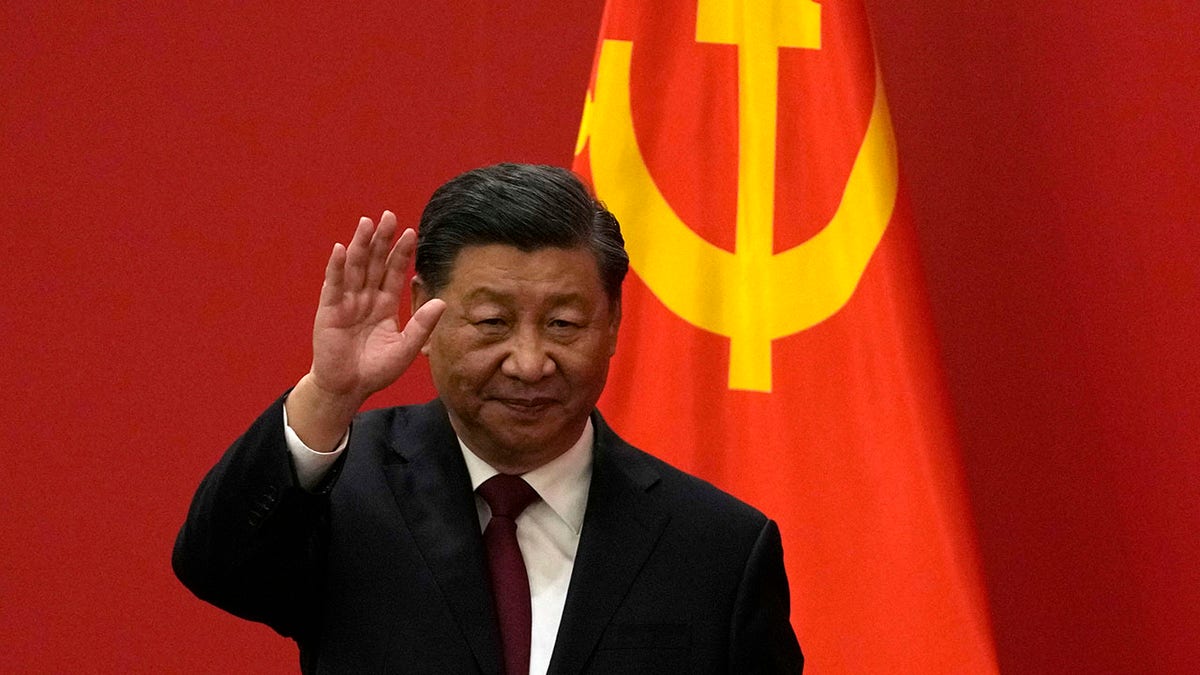
Chinese President Xi Jinping waves at an event to introduce new members of the Politburo Standing Committee at the Great Hall of the People in Beijing Oct. 23, 2022. (AP Photo/Andy Wong, File)
A recent example of China’s attempts to establish this “new normal” is changes to airspace rules. China is close to finishing a massive new airport serving Xiamen in Fujian Province. Just 6.2 miles away, however, sits the island of Kinmen, which has remained a part of the Republic of China (ROC), better known as Taiwan, since 1949.
Kinmen Airport is strategically important for Taiwan. In 2015, the two sides worked out a deal to change a flight path that was a bit too close for Taiwan’s comfort. But in February, Beijing unilaterally backed out of the deal, announcing that, from May 16, new air routes would begin operating to “further optimize airspace” around the area.
FOR CHINA’S MILITARY PLANNERS, TAIWAN IS NOT AN EASY ISLAND TO INVADE
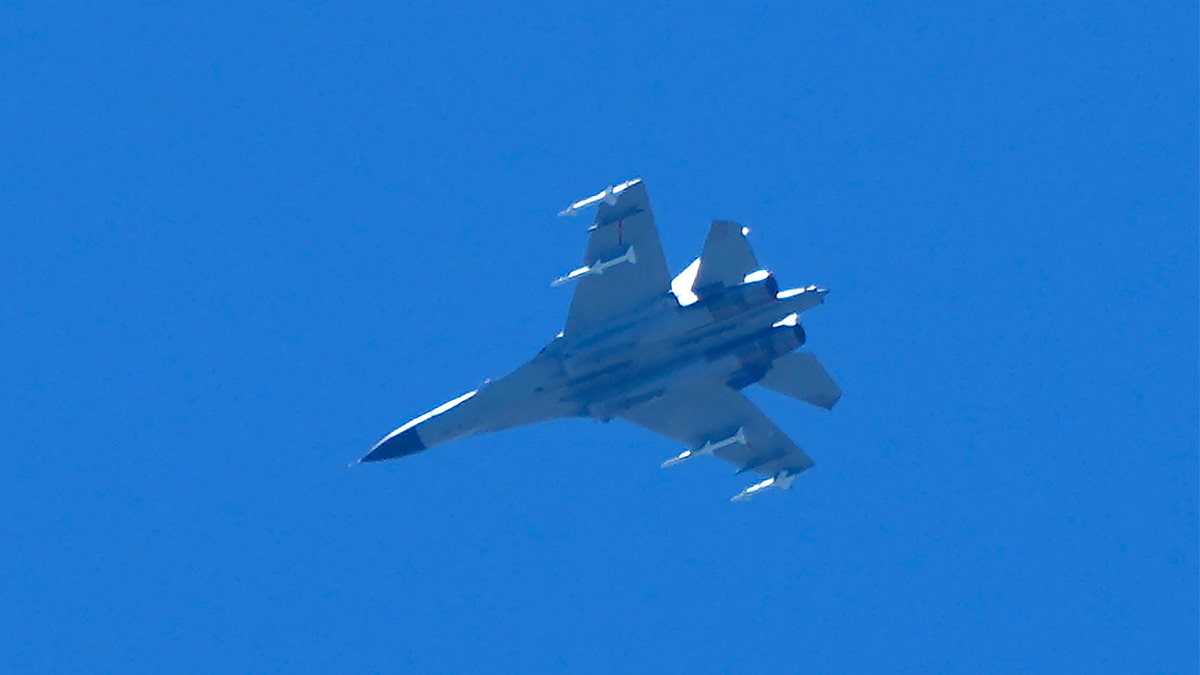
A fighter jet flies in the direction of Taiwan as seen from the 68-nautical-mile scenic spot, the closest point in mainland China to the island of Taiwan, in Pingtan in southeastern China’s Fujian Province Aug. 5, 2022. (AP Photo/Ng Han Guan)
Few China watchers think China picked the day arbitrarily, says Karalekas.
“Beijing has a pattern of testing new leaders of enemy states. They tested Bush with the EP-3E spy plane incident. They tested (then-Japanese prime minister) Naoto Kan with the Senkaku boat collision. We can expect them to test Lai by creating some sort of mini-crisis around the time he takes office on May 20.”
“I think China is really ramping up threats,” Eric Hsu told Fox News Digital. Hsu lives in southern Taiwan’s biggest city, Kaohsiung, has worked on historical restoration projects and hosts a podcast on Taiwan history.
He says he isn’t only worried about military hardware, but also what he termed, “brainwashing videos and moves by KOLs,” (Key Opinion Leaders, a term used to describe internet influencers).
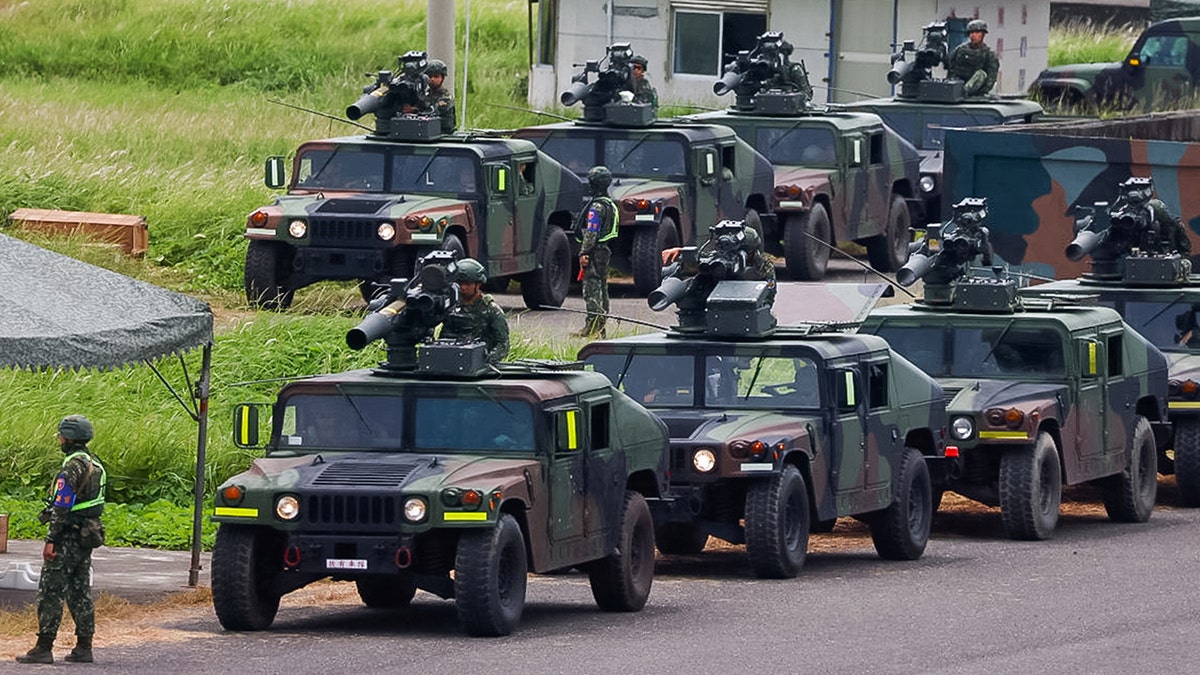
Military vehicles equipped with a U.S.-made TOW 2A missile during a live fire drill in Pingtung, Taiwan, July 3, 2023. (REUTERS/Ann Wang)
Hsu places much of the blame at the feet of local opposition parties seen by many as more friendly to Beijing. Describing the current domestic political situation, he said Taiwan faces “not just an enemy at the gate, but also enemies within.” South Taiwan is a DPP stronghold, but not everyone in the south agrees that the opposition parties are the problem.
Another resident of Kaohsiung, a self-employed businessperson and mother, Ms. Lin, thinks the DPP hasn’t been sincere in reaching out to China.
“They’ve had eight years, and now they will get at least another four,” Lin told Fox News Digital. “What Taiwan needs are brave leaders, people willing to try new solutions, and I don’t see any such people in the current DPP leadership.”
TAIWAN PRESIDENT-ELECT CHOOSES NEW FOREIGN, DEFENSE MINISTERS AS CHINA ANNEXATION THREATS INTENSIFY
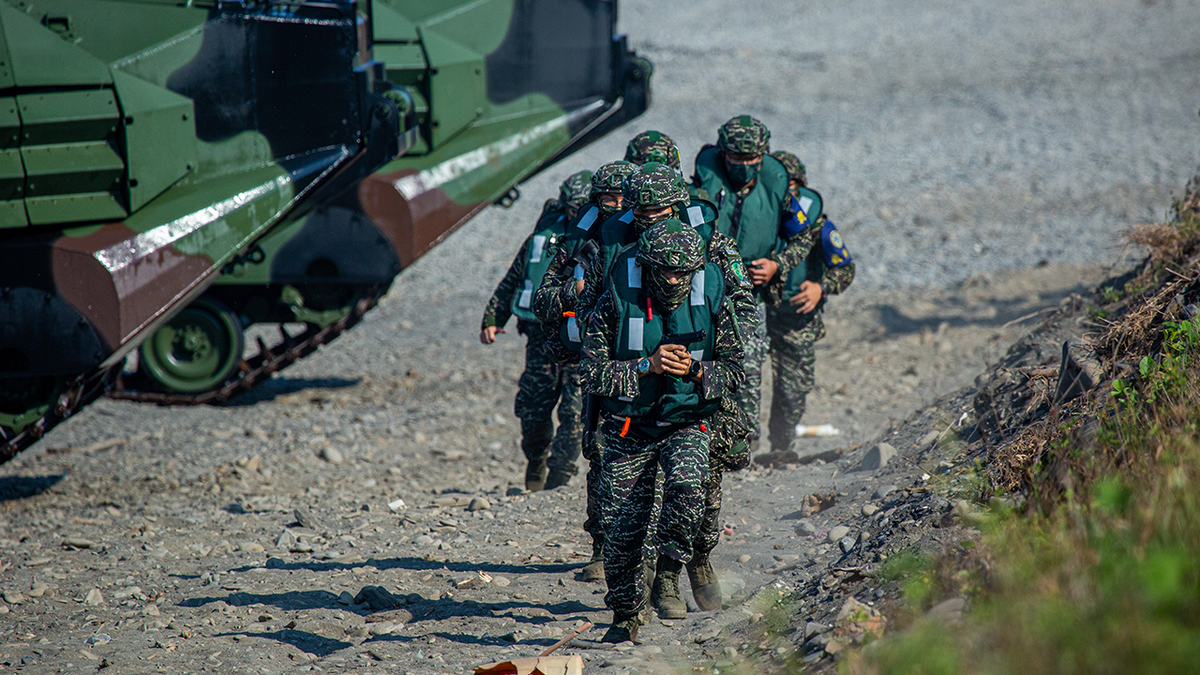
Soldiers disembark from AAV7 amphibious assault vehicles during the Han Kuang military exercise, which simulates the China’s People’s Liberation Army invading the island July 28, 2022 in Pingtung, Taiwan. (Annabelle Chih/Getty Images)
The main opposition party, the Kuomintang (KMT), denies it is “China-friendly” and instead says it is “peace-friendly.” Chinese dictator Xi Jinping has met with the KMT’s Ma Ying-jeou twice, first in Singapore in 2015 when Ma was in office as ROC (Taiwan) president. It was the first time since the end of WWII top leaders from China and Taiwan sat in the same room. Each side in 2015 chose to ignore official titles and address each other as “Mr. Xi” and “Mr. Ma.” On April 10,, “Mr. Xi” and former Taiwan president “Mr. Ma” met again, this time in Beijing.
Some experts see such meetings between the KMT and China favorably, arguing that any dialogue is good and – if nothing else – provides a way for China to save face as it continues its policy of mandatory “reunification,” which China now says may need to be achieved by force. Others in Taiwan and abroad see Ma’s meetings as straying far too close to an acceptance of the idea that Taiwan is a part of China.
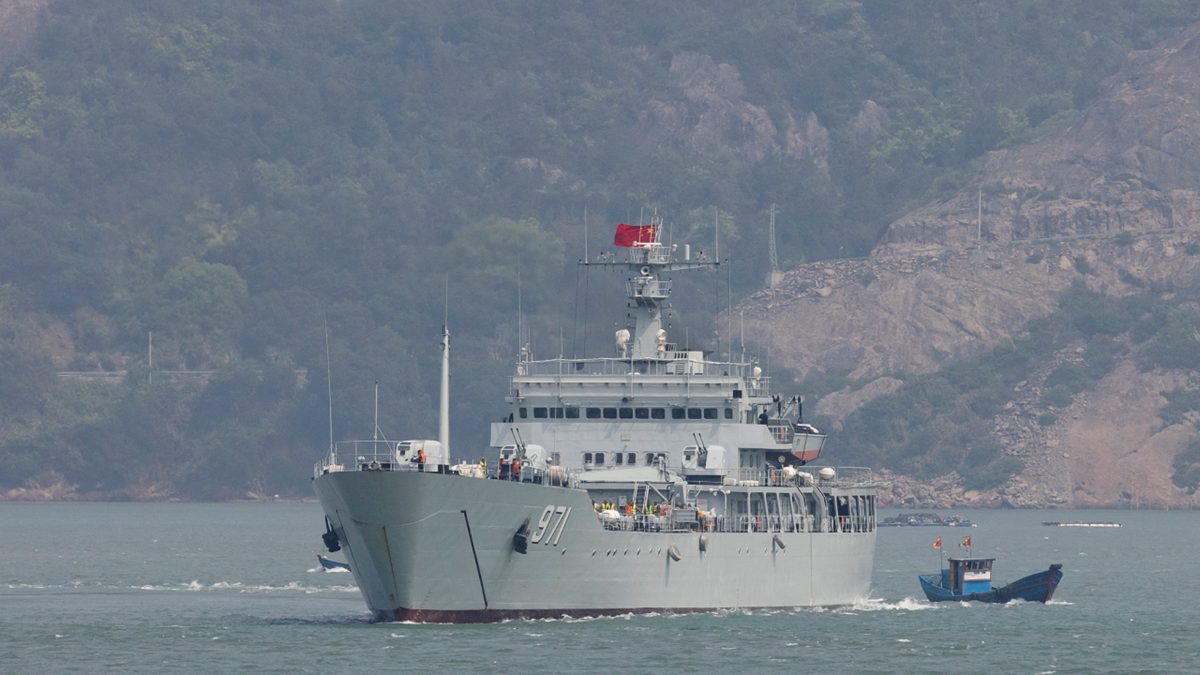
A Chinese warship sails during a military drill near the Taiwan-controlled Matsu Islands near the Chinese coast April 8. (Reuters/Thomas Peter)
As it stands, the ruling DPP says it’s content with the status quo, including keeping Taiwan’s official name, the Republic of China. The KMT is generally more in favor of talks with Beijing under a mutual respect “consensus” idea that boils down to agreeing that both sides are “China,” but each side is free to interpret what this “one China” means.
The problem with the KMT’s thinking, central Taiwan-based newspaper columnist and political commentator Michael Turton told Fox News Digital, is that “Xi’s goal is the complete subjugation of Taiwan, just like Hong Kong. Two of China’s ambassadors abroad have already indicated that Taiwanese opposed to Beijing rule will be shipped off to concentration camps. Given this goal, how can there ever be dialogue with mutual respect?”
World
Brussels, my love? Champage cracked open to celebrate the Big Bang

In this edition, we zoom in on dwindling press freedom in Europe and check how Europe is doing 20 years after the big bang enlargement.
This week, we are joined by Olena Abramovych, Brussels correspondent for Ukrainian TV, Ricardo Borges de Castro, analyst in European and global affairs and Polish journalist Dorota Bawolek.
Panelists reflect on the big bang enlargement of the European Union that took place 20 years ago when leaders of 10 new countries presented their flags to Pat Cox, then president of the European Parliament. Despite the bumps along the way, the panel agreed it was a success.
“Even though you can say that the story has not always be rosy, over the past 20 years it has been a great story”, Ricardo Borges de Castro said.
The panel also marked International Press Freedom Day by focusing on the dwindling press freedom in the EU.
“It is very worrying and at the same time, unfortunately, not very surprising”, said Dorota Bawolek, who suffered attacks both online and offline for her reporting, and experienced censorship.
“Democracy in Europe is not living its best days at the moment. And media and media freedom is one of the victims of it”, she said.
Watch “Brussels, my love?” in the player above.
-

 News1 week ago
News1 week agoLarry Webb’s deathbed confession solves 2000 cold case murder of Susan and Natasha Carter, 10, whose remains were found hours after he died
-

 News1 week ago
News1 week agoFirst cargo ship passes through new channel since Baltimore bridge collapse
-

 World1 week ago
World1 week agoHaiti Prime Minister Ariel Henry resigns, transitional council takes power
-

 World1 week ago
World1 week agoSpanish PM Pedro Sanchez suspends public duties to 'reflect'
-

 World1 week ago
World1 week agoUS secretly sent long-range ATACMS weapons to Ukraine
-

 News1 week ago
News1 week agoAmerican Airlines passenger alleges discrimination over use of first-class restroom
-

 Movie Reviews1 week ago
Movie Reviews1 week agoHumane (2024) – Movie Review
-

 Education1 week ago
Education1 week agoVideo: Johnson Condemns Pro-Palestinian Protests at Columbia University

